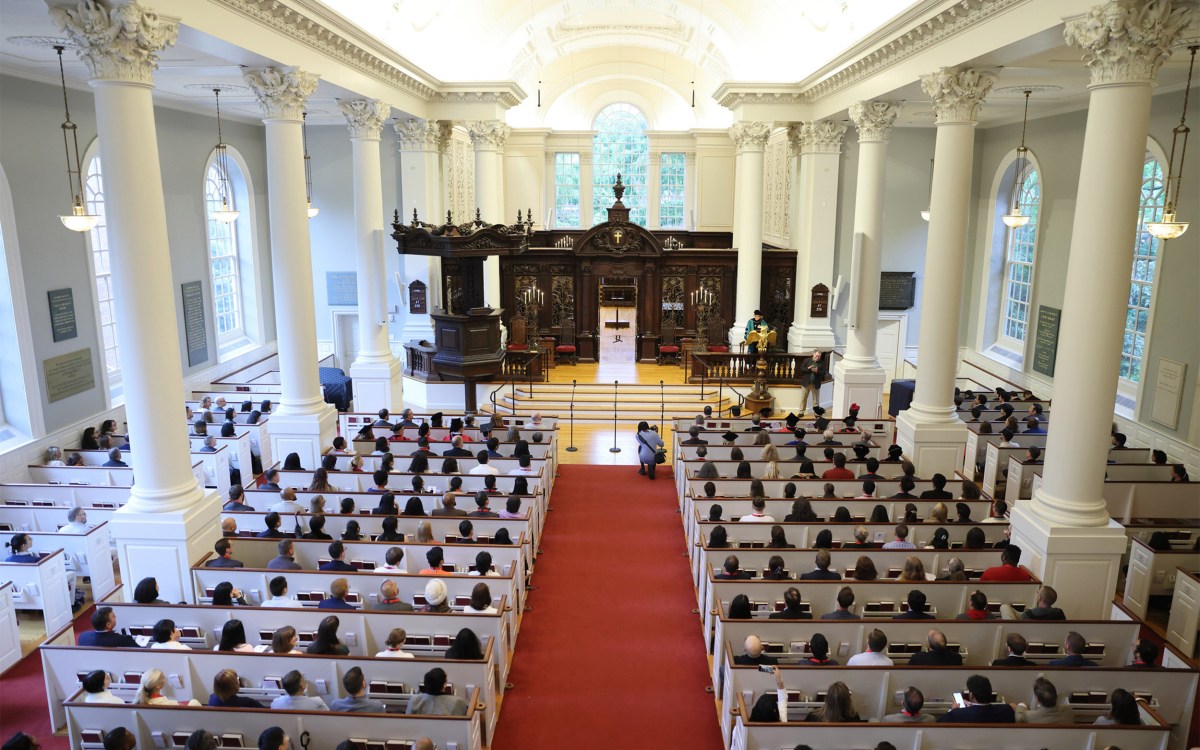Conference examines economics of health innovation
Life sciences revolution driving medical care and expenses
The economics of biomedical research was at center stage at Harvard Medical School (HMS) April 28 during a conference convened to answer critics who say new treatments and devices drive up health-care costs while bringing few health benefits.
Organizers said the event, held at the Medical School’s New Research Building, was intended as an initial effort to determine how to measure and highlight the benefits of biomedical research. The conference was intended to help design an agenda for future research on the topic.
“The idea was to create the beginning of academic thinking on how you measure these benefits and how to change public opinion,” said Arthur Ullian, chairman of the task force on science, health care and the economy.
The all-day event, “Reassessing the Value Equation: A Conference on Consequences of Biomedical Innovation and Health Care Spending,” featured several panel discussions on a variety of topics ranging from the impact of health care on the economy to the return on investment from health-care spending to the effect of health-care spending on overall health.
The conference was sponsored by the Harvard Interfaculty Program for Health Systems Improvement, Duke University’s Center for Demographic Studies, the task force on science, health care and the economy, and the Mary and Albert Lasker Foundation.
HMS Dean Joseph Martin, in introductory remarks for a lunchtime panel, said that, though the conference was intended to answer the question of whether health innovation is good or bad, Harvard Medical School is already committed to finding new ways to improve health.
“Innovation is what we’re all about,” Martin said, adding that the School’s interest in improving health care is what draws talented students and fellows. “They expect to make a difference.”
Martin cited discoveries by Medical School Professor John Enders that led to the development of a polio vaccine as an example of a beneficial innovation. Looking at it from an economics standpoint, Martin said, the development of a polio vaccine saved enough resources to fully fund the National Institutes of Health to the present.
Today’s equivalent to the polio vaccine may well be in the process of being forged in research labs. Martin cited the discovery, by researchers at the Dana-Farber Cancer Institute and at Massachusetts General Hospital, of a type of lung cancer that can be treated with a targeted drug as a development that could lead to customized drugs for particular cancers and other illnesses.
The lunchtime panel featured Harvard President Lawrence H. Summers and Merck & Co. Chairman, President, and Chief Executive Officer Raymond Gilmartin.
Gilmartin said that drug companies like Merck are responding to the public’s concern about rising health-care costs by trying to extract greater value from the companies’ own operations. This effort to improve efficiency, however, comes at a time of rapid advances in biological sciences that are pushing drug companies to invest in research and in innovative technologies.
“The rate of change is enormous,” Gilmartin said. “We are truly in the midst of a revolution in biological sciences.”
Summers said the task ahead is partly one of education. Unlike other growth industries, such as aviation when it was in its infancy, people see the growth of health-care spending as being negative. Summers said there may be a couple of reasons for that, including concerns about inequality of health-care access and that people aren’t getting value for the growth in spending.
Summers said people like those at the conference need to find ways to communicate to the public that spending on health care is not wasted, and that the spending does result in better health.




